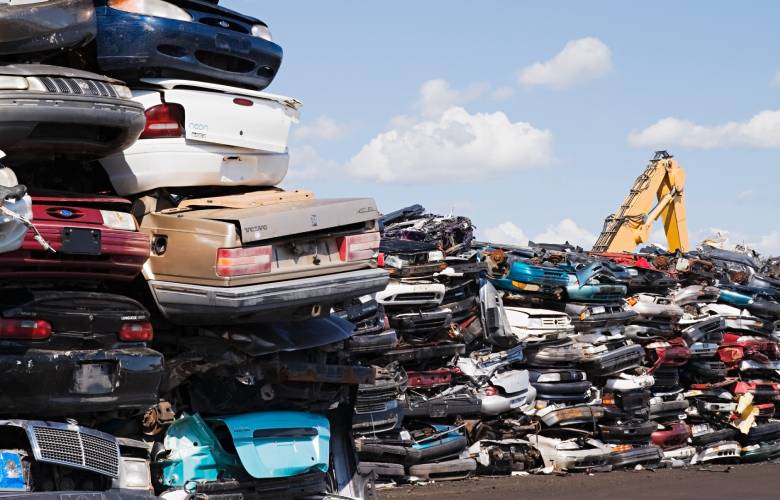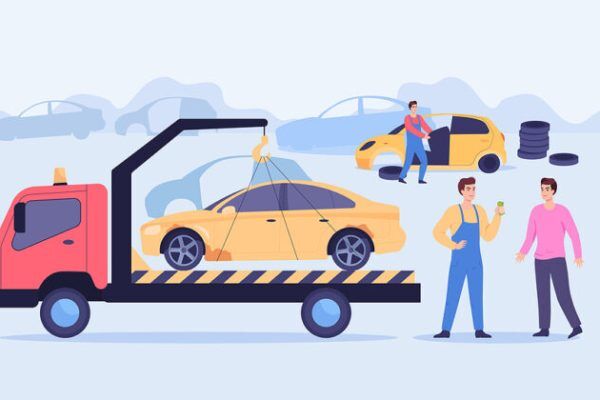
Introduction
Overview of Scrapping a Car in Singapore
In Singapore, car ownership can be a significant commitment, often ending with the decision to scrap a vehicle when it has outlived its usefulness. The process of scrapping a car involves de-registering it with the Land Transport Authority (LTA) and disposing of it at an authorized scrap yard. With regulations strictly enforced, the scrapping process ensures that vehicle owners can comply with legal requirements while also promoting environmental sustainability. The benefits of scrapping a car instead of letting it languish include:
- Financial Gain: When done correctly, you can receive a competitive scrap car price, especially for components that still hold value.
- Ease of Process: A licensed scrapyard can make the scrapping process seamless by handling paperwork and logistics.
Through scrapping, vehicle owners not only rid themselves of a burden but also contribute to recycling efforts, as many parts from the scrap car can be repurposed.
Importance of Proper Car Scrapping
Proper car scrapping is crucial for various reasons. Firstly, it minimizes environmental impact. Improper disposal of vehicles can lead to hazardous materials leaking into the soil and water systems. By choosing licensed scrap yards, owners ensure that:
- Hazardous Materials: Elements like batteries and fluids are safely disposed of.
- Resource Recovery: Metals and plastics are recycled, reducing the demand for new raw materials.
Additionally, responsible scrapping promotes a cleaner, greener Singapore. Vehicle owners should treat car scrapping as an essential part of their vehicle’s lifecycle, ensuring that the process is managed efficiently and ethically. This way, individuals can enjoy peace of mind while contributing to a sustainable future.

Understanding the Scrapping Process
Legal Requirements for Scrapping a Car
When it comes to scrapping a car in Singapore, navigating the legal requirements is essential to ensure everything is done by the book. The process begins with de-registration, which is an official step you cannot skip. This typically involves visiting the Land Transport Authority (LTA) and submitting necessary documents such as:
- Identification: Your NRIC or company registration (if applicable).
- Vehicle Registration Certificate: To prove ownership.
Once these steps are completed, your vehicle will be officially de-registered. Only a licensed scrapyard can then process your vehicle. Failing to follow these legal requirements can lead to penalties, so it’s best to take them seriously.
Environmental Impact of Improper Scrapping
Improper scrapping of vehicles can have dire environmental consequences. Many cars contain a variety of hazardous materials that can seep into the ground and contaminate water supplies if not disposed of correctly. Some of these materials include:
- Batteries: Lead and acid can be harmful to both soil and water.
- Fluids: Oil and coolant can pollute the environment if released carelessly.
- Plastics and Metals: When not recycled properly, they contribute to landfill waste.

Common Mistakes to Avoid
Mistake 1: Not Removing Personal Belongings
One of the simplest yet most overlooked steps in the car scrapping process is removing personal belongings. Many vehicle owners may forget that their car can hold sentimental items, important documents, or even valuables. Imagine scrapping a car only to realize days later that a treasured memento or crucial paperwork was left behind. To avoid this, make a checklist of personal items to remove:
- Clothing and Accessories: Sunglasses, jackets, or other personal items.
- Documents: Insurance papers, registration documents, or receipts.
- Electronic Devices: Chargers or navigation systems often get overlooked.
Mistake 2: Skipping Proper De-registration Process
Another common pitfall is not completing the de-registration process before scrapping the vehicle. This step is vital to ensure you’re not held responsible for any liabilities linked to the car post-scrapping. Failing to de-register can lead to fines, as the vehicle’s registration remains active. Always remember:
- Visit the LTA to officially de-register.
- Or you can de-register online.
- Keep a copy of the de-registration certificate for your records.
Mistake 3: Choosing an Unlicensed Scrapyard
Opting for unlicensed scrapyards can seem like a cost-saving measure, but it can lead to headaches down the road. Not only can you face legal repercussions, but improper handling of your vehicle can also harm the environment. Always seek out licensed scrapyards, which can be verified through the relevant authorities.
Mistake 4: Not Maximizing Value of Scrap Materials
Car owners often miss out on maximizing their scrap car’s value. While the whole vehicle may not be worth much, parts like the engine, catalytic converter, and even tires can fetch a good price. Researching the best scrap car prices and asking scrapyards about the value of different components can lead to better returns.
Mistake 5: Ignoring Proper Documentation
Proper documentation is crucial in the scrapping process. Without the appropriate paperwork, you may struggle to complete the process smoothly. Always keep the following in check:
- Vehicle Registration Certificate: This proves your ownership.
- De-registration Certificate: Proof that the vehicle is no longer registered.
By avoiding these common mistakes, vehicle owners can have a hassle-free experience when scrapping their cars, ensuring both personal satisfaction and compliance with local regulations.

Choosing the Right Scrapyard
Researching Licensed Scrapyards
Finding the right scrapyard can make all the difference in your car scrapping experience. The first step is to ensure you're dealing with licensed scrapyards, as they comply with regulations and prioritize environmentally safe practices. A little research goes a long way here. You can start by:
- Checking Online Reviews: Websites like Google, Facebook, or specialized automotive forums can provide insights from other customers. Their experiences can highlight the reliability and professionalism of a yard.
- Consulting with Friends and Family: Personal recommendations often lead to trusted scrapyards. If someone you know has had a positive experience, there’s a good chance you will too.
Remember, a licensed scrapyard not only protects you from legal troubles but also assures that your car will be disposed of responsibly.
Evaluating Pricing and Services Offered
Once you have a list of potential scrapyards, it’s time to evaluate them based on pricing and the services they offer. A common mistake is to rush into a decision based on the first quote received. Take the time to compare. Here’s how to go about it:
- Request Quotes: Contact multiple scrapyards and ask for scrap car prices. Understand that prices can vary based on vehicle condition and parts salvaged.
- Inquire About Additional Services: Some scrapyards may offer free towing services, while others can assist with de-registration paperwork. These factors can save you time and money.
- Ask About Recycling Practices: A responsible scrapyard should be able to explain how they recycle materials and what happens to your vehicle post-scrapping.
Taking the time to research and evaluate licensed scrapyards not only ensures a better scrap car price but also guarantees a smoother and more trustworthy scrapping process. By making informed decisions, vehicle owners can enjoy peace of mind throughout the experience.
Tips for a Smooth Scrapping Process
Preparing Your Car for Scrapping
Preparing your car for scrapping is a vital step that can streamline the entire process. Before heading to the scrapyard, take a few moments to ensure your vehicle is ready. Start by:
- Removing Personal Items: As mentioned earlier, don’t forget to collect all personal belongings. It can be surprising what you might find in your glove compartment or trunk!
- Cleaning the Interior: While the condition of the car itself may not matter much, a tidy interior can help you remember what you need to take out.
- Checking Fluid Levels: If the vehicle still runs, consider draining fluids like oil and coolant. This not only helps in the scrapping process but is also more environmentally responsible.
Taking time to prepare your car can save you and the scrapyard time and effort.
Understanding the Scrapping Costs
Next, it’s essential to have a clear understanding of any potential scrapping costs. While many scrapyards offer free collection services, some may charge for towing or handling fees. Here’s how to navigate this landscape:
- Get Informed: Ask the scrapyard about any fees upfront. This way, you won't encounter unexpected costs.
- Ask About the Scrap Car Price: Ensure understanding of how they determine the scrap value. Factors like vehicle weight and condition of the parts can influence this figure.
Ensuring Proper Disposal of Hazardous Materials
Lastly, one of the crucial aspects of scrapping a car is ensuring the safe disposal of hazardous materials. Cars can contain several dangerous components, including:
- Batteries: Lead-acid batteries must be recycled properly to prevent environmental contamination.
- Fluids: Motor oil and coolant should be disposed of safely to avoid soil and water pollution.
- Airbags: These must be handled by professionals to mitigate risks during the scrapping process.
When choosing a scrapyard, always confirm that they adhere to environmental standards for hazardous waste disposal. A responsible scrapyard will take care of these materials properly, ensuring safety for both you and the environment. By following these tips, vehicle owners can navigate the scrapping process smoothly, ensuring they meet all requirements while contributing positively to environmental sustainability.
Conclusion
Recap of the 5 Mistakes to Avoid
As we wrap up our discussion on scrapping a car in Singapore, it’s essential to reflect on the common mistakes to avoid for a seamless experience. Recalling these key points can significantly smooth your process:
- Not Removing Personal Belongings: Always check your car thoroughly before scrapping.
- Skipping Proper De-registration: Ensure that you officially inform the LTA about your vehicle’s status.
- Choosing an Unlicensed Scrapyard: Stick to licensed scrapyards to stay compliant and environmentally responsible.
- Not Maximizing the Value of Scrap Materials: Research and compare prices to ensure you’re getting the best possible deal.
- Ignoring Proper Documentation: Keep all necessary paperwork ready to avoid complications.
By steering clear of these missteps, you can significantly enhance your scrapping experience.
Importance of Responsible Car Scrapping
Responsible car scrapping is not just about relieving yourself of an old vehicle; it plays a vital role in environmental sustainability and community safety. Each year, thousands of vehicles end up in landfills, posing risks due to hazardous materials that could leach into the environment. By utilizing licensed scrapyards, you contribute to:
- Resource Recovery: Recycling metals and parts helps reduce the need for new raw materials, preserving resources for future generations.
- Environmental Protection: Proper disposal of hazardous materials mitigates the risk of soil and water contamination.
- Community Safety: Ensuring safe scrapping practices helps keep your community clean and safe from potential environmental hazards.
In conclusion, taking the time to plan your car scrapping process, avoiding common pitfalls, and prioritizing responsible practices creates a positive impact both for yourself and the environment. By adopting these principles, each vehicle owner can contribute to a sustainable ecosystem while ensuring a hassle-free scrapping experience.
